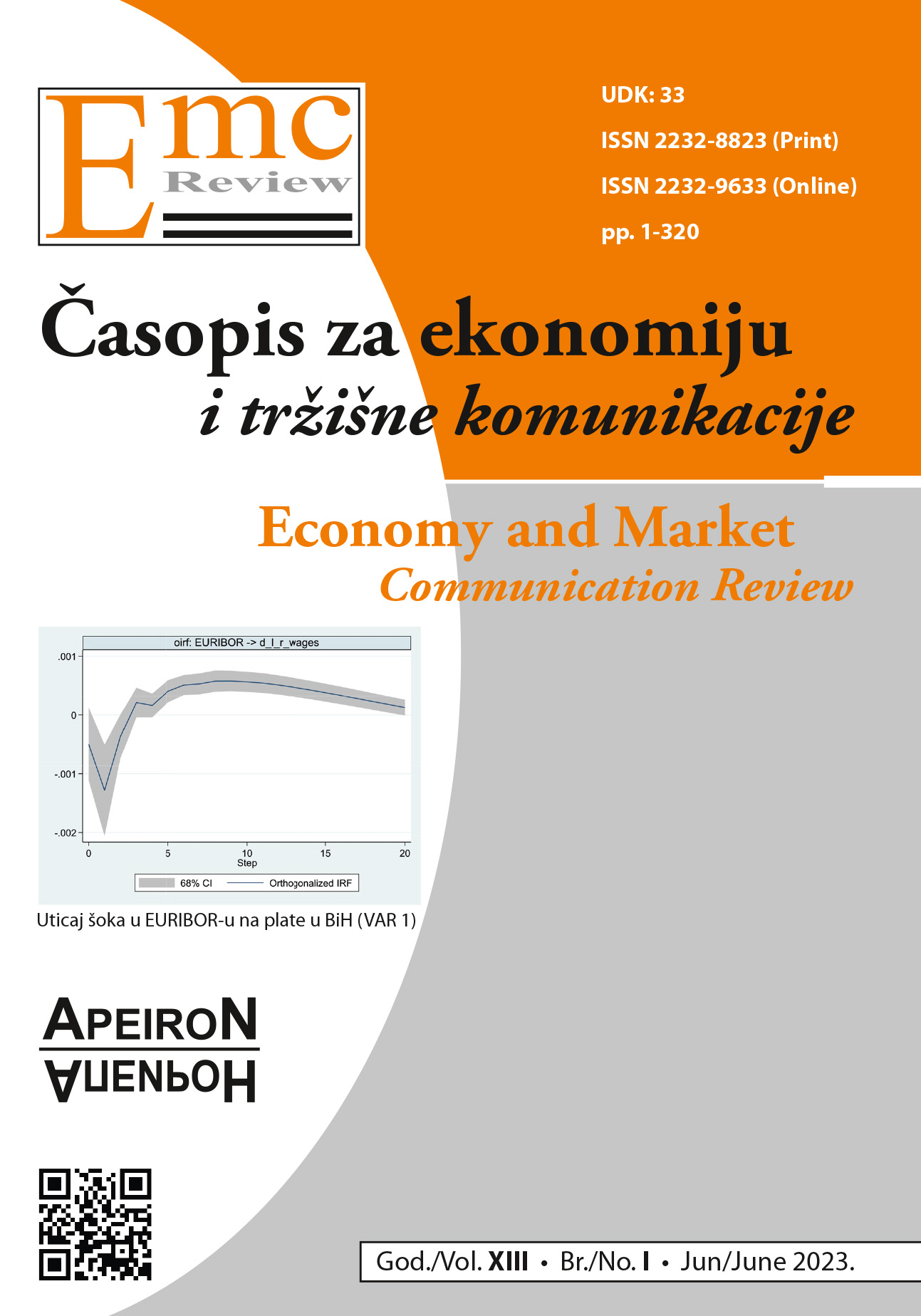LEGAL STATUS OF COMPETITION RIGHTS IN THE LEGAL ORDER OF BOSNIA AND HERZEGOVINA
DOI:
https://doi.org/10.7251/EMC2301247MAbstract
The functioning of any market economy is based on market competition where market competitors compete with each other through price, quality and other characteristics of products and/or services. Parallel to the development of the market economy, there was a need to regulate the rules of market competition, that is, to prevent monopolies. Competition law represents one of the basic segments in the function of establishing equal market competition between economic entities. Essential competition law is a branch of law that consists of rules aimed at protecting market competition as a process and ensuring that companies (market participants) operating in the free market do not limit, distort or prevent competition in ways that would prevent market mechanisms from to function normally. As a country that aspires to join the European Union, Bosnia and Herzegovina has fulfilled a number of set European conditions, among which is ensuring free market competition, which also implies the adoption of regulations related to competition law. Competition law in Bosnia and Herzegovina is regulated by the Law on Competition of Bosnia and Herzegovina, which is a fundamental legal regulation in the function of promoting fair competition and competition of business entities on the market, which is based on a fair basis. The Competition Law of Bosnia and Herzegovina defines the rules, measures and procedures for the protection of market competition, as well as the competences and working methods of the Competition Council of Bosnia and Herzegovina, which has a key role in the prevention of occurrence, as well as in the elimination of imbalances in the market. The aim of this paper is to shed light on the legal status of competition law in the legal order of Bosnia and Herzegovina and to point out the problems of illegal behavior on the market that can arise from: prohibited agreements, dominant position and prohibited concentration, which are the sources of the most common disturbances in the BiH market. Prohibited agreements are agreements, contracts, certain provisions of agreements or contracts, joint actions, express and tacit agreements of economic entities, as well as decisions and other acts of economic entities whose aim and effect are to prevent, limit or distort market competition on the relevant market. The acquisition of control on the BiH market is achieved in several ways: by law, by concluding an agreement or by other means by which one or more economic entities, either individually or jointly, taking into account all legal and factual circumstances, acquires the possibility of exercising dominant influence over one or more of business entities, Finally, the prohibited concentration is most often achieved by acquiring the majority of shares or shares in the basic capital, acquiring the majority of voting rights at the company’s assembly, etc. In addition to the above, concentration can also be based on joint investment on a long-term basis between two or more economic entities. Apart from a short introduction, the paper consists of five parts. In the first, general guidelines on competition law are given, in the second the emphasis is placed on prohibited agreements, and in the third on the abuse of a dominant position. The fourth unit refers to prohibited concentration on the market, and the fifth to the role of the Competition Council.
